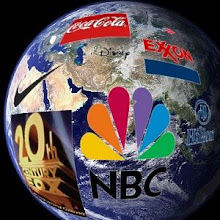
"No government ought to be without censors & where the press is free, no one ever will."
-Thomas Jefferson
Since this country was founded, we have had a set of unalienable rights that our constitution guarantees us to as Americans. One of the most important rights that is mentioned in our constitution is the right to free speech. “Congress shall make no law respecting an establishment of religion, or prohibiting the free exercise thereof; or abridging the freedom of speech, or of the press; or the right of the people peaceably to assemble, and to petition the government for a redress of grievances.” These are the exact words used by our country’s forefathers when they made these amendments in the late 1700’s. Movies, books, music, thoughts, ideas, and literature are all things that have been censored in this country. Censorship exists to some extent in all modern countries, including the U.S., U.K., Germany, France, Singapore, Australia and New Zealand.
The U.S. Government has the ablility to censor anything that poses a threat to National Security, Military Operations and war, or that poses a "clear and present danger."
All are under the influences of censorship when they post their findings and opinions into the mass media. According to Peter Phillips, Director of Project Censored, Media corporations have been undergoing a massive merging and buy-out process that is realigning our sources of information in America. Conglomeration changes traditional media corporate cultures. Values such as freedom of information and belief in the responsibility of keeping the public informed are adjusted to reflect policies created by bottom-line oriented CEOs.
Media owners and managers are motivated to please advertisers and upper middle class readers and viewers. Journalists and editors are not immune from management influence. Journalists want to see their stories approved for print or broadcast, and editors come to know the limits of their freedom to diverge from the bottom line view of owners and managers. The results are an expansion of entertainment news, infomercials, and synergistic news- all aimed at increased profit taking. For example in 1997, the new CEO of the Los Angeles Times found it necessary to assign a business manager to each section of the newspaper in order to insure that a proper profit-oriented product was developed and to help maintain a corporate climate that reflected the management desires of the board of directors.
Keeping democracy safe in America requires an informed electorate and a strong watchdog press. But major media today are tending to favor news stories on sex scandals, celebrity events, and crime, leaving less or little room for analytical news on important social issues. If privately owned commercial media will not meet the task of keeping democracy safe, then it is time for a strong public supported national news system.


No comments:
Post a Comment